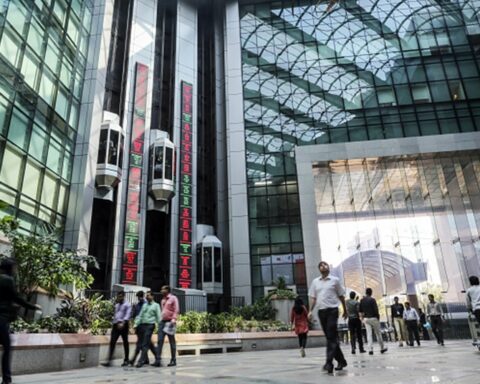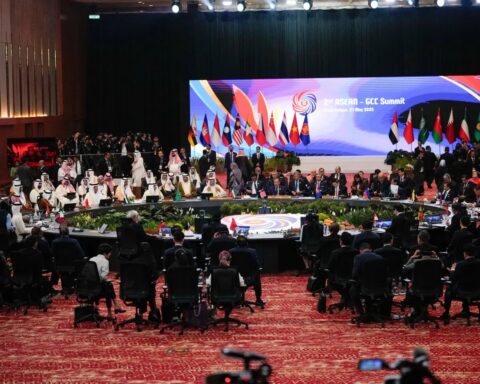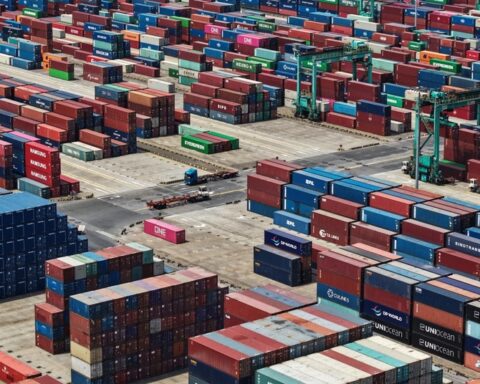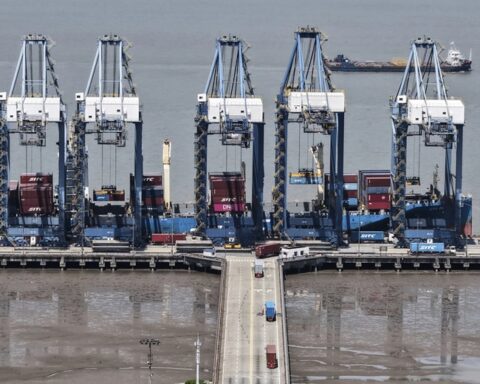BENGALURU, April 25 (Reuters) – The Indian economy will grow a bit slower than previously thought this fiscal year, according to economists in a Reuters poll who said U.S. tariffs have negatively impacted business sentiment, raising concerns about already weak private investment.
Gross domestic product (GDP) growth in the world’s fifth-largest economy is expected to average 6.3% this fiscal year, according to an April 15-24 Reuters poll of 54 economists, the same pace as expected for the year just ended.
This fiscal year’s forecast is a downgrade from 6.5% in a March poll but is slightly above the International Monetary Fund’s recently-updated forecast for 6.2%. But it is a dramatic slowdown from the fiscal year 2023-24 when the economy grew 9.2%.
Economists say beneath the headline growth numbers is an economy not generating enough well-paying jobs for millions of young people entering the labour market every year.
Despite the government stepping up its infrastructure spending, private sector investment has largely remained stagnant over the past decade which has generated growth well below the economy’s true potential.
A proposed 26% U.S. tariff on Indian goods imports, currently paused for 90 days, is also not helping even though most of India’s exports to the U.S. are services.
“Middle-class Indians are struggling. Residential building sales, passenger vehicles and two-wheelers (sales) have declined… It is important domestic policies focus on the root cause,” said Kunal Kundu, India economist at Societe Generale.
Kundu said “India needs a 1991 moment,” referring to a landmark campaign by former Prime Minister Manmohan Singh, then finance minister, to open up the economy to encourage foreign investment and competition.
“We believe the tariff war offers a perfect opportunity for India to embark on this much-needed journey. Otherwise, despite being the fastest-growing large economy in the current low global growth environment, India is likely to fall significantly short of its long-term objective of becoming a developed nation.”
Asked how U.S. tariffs have affected business sentiment in India 60% of economists, 21 of 35, said the impact was negative or very negative. Fourteen said it was neutral.
“Business sentiment has certainly taken a hit because no business today wants to take a call under an uncertain and volatile environment…(and) investment is the most adversely affected component on account of trade tariffs,” said Kanika Pasricha, chief economic advisor at Union Bank of India.
“Sectors that were actually willing to invest like renewables, refineries, steel and cement to some extent are unlikely to elongate their capital expenditure plans.”
With U.S. recession fears rising and consumer inflation remaining below the 4% medium-term target for the past two months the Reserve Bank of India’s (RBI) mild rate-cutting cycle is expected to end in August at 5.50%, a quarter-point lower than the previous survey.
The RBI is widely expected to cut rates for a third consecutive meeting in June to 5.75%.
“The unexpected drop in inflation… has created greater scope for monetary policy support to growth,” said Dhiraj Nim, economist at ANZ.
Consumer inflation was expected to average 4.0% this fiscal year before rising to 4.3% next year.





